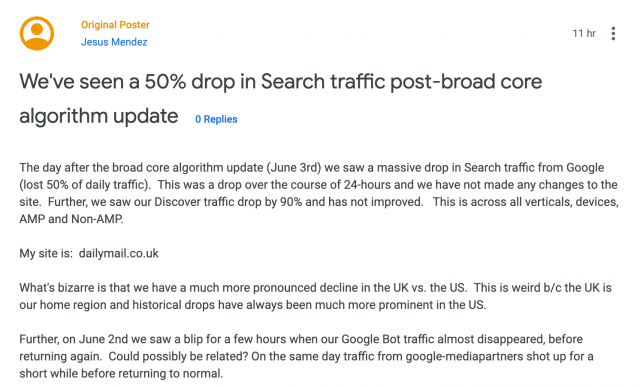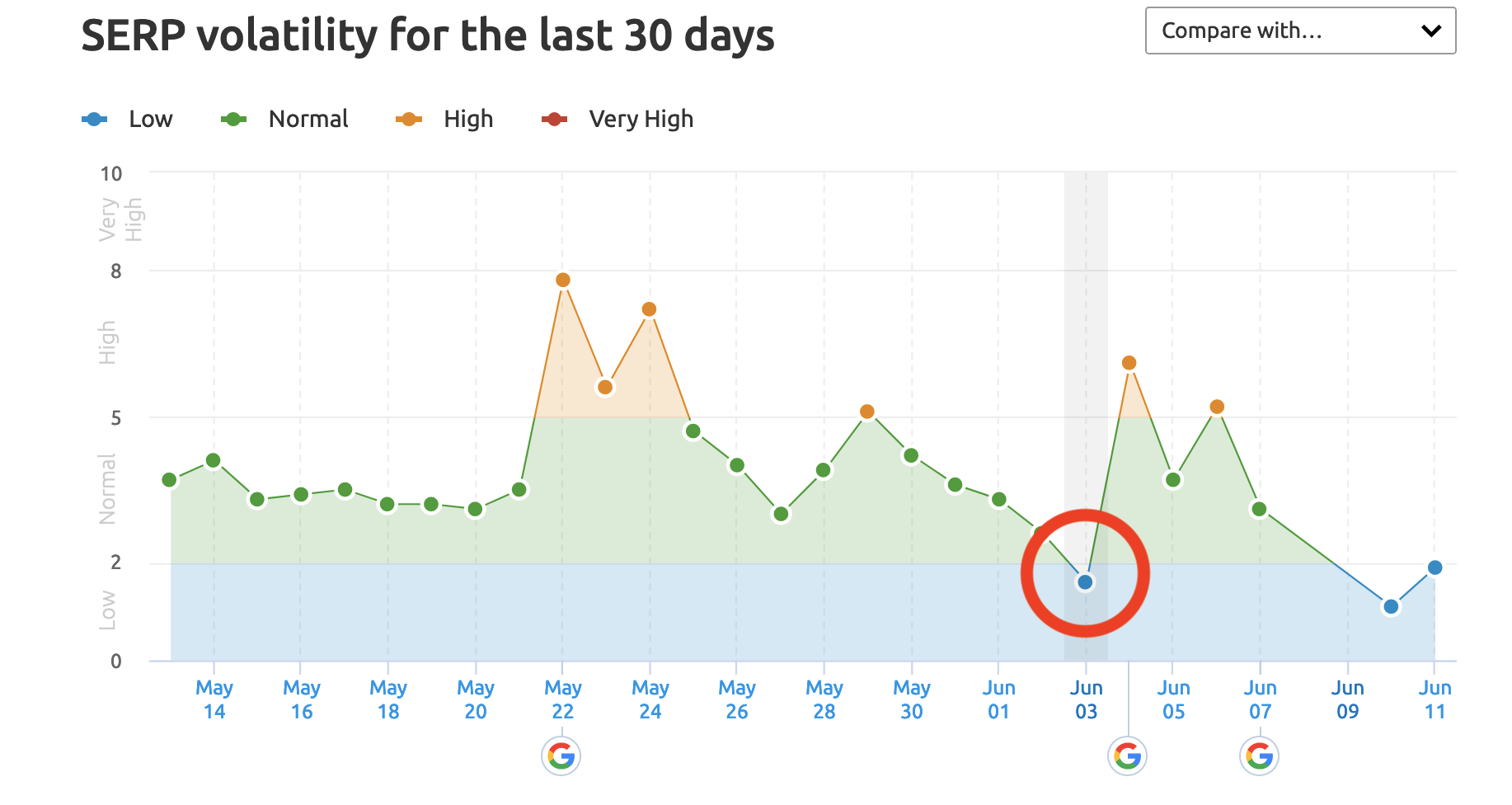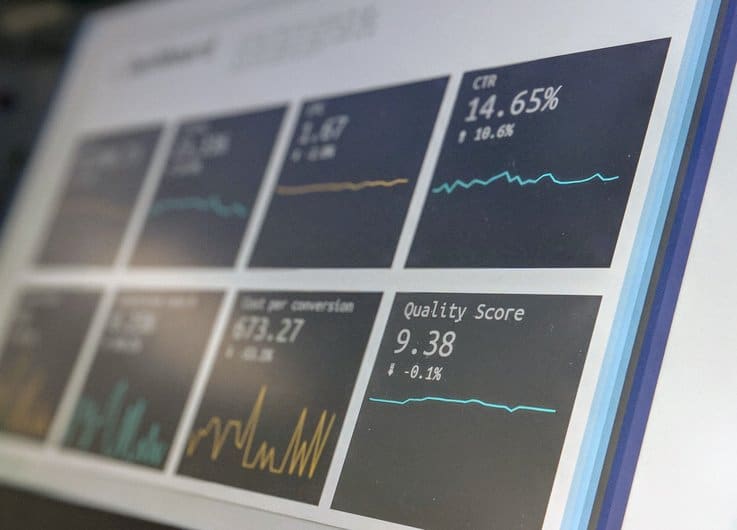If you’re a webmaster or digital marketer, it’s crucial to note that Google updated its core algorithm late last week. This unprecedented change had a major impact – both positively and negatively – on a number of high-ranking websites.
How and why were these sites affected? And how can you observe the best SEO practices to rank higher on Google? We’re going to break everything down in this blog post.
Understanding the Algorithm
Before we take a deep dive into the specifics, let’s ensure we all understand the fundamental basics. Google is the number one search engine in the world and 40,000 searches are conducted every second, which equates to nearly 1.2 trillion queries per year.
Now search engines have changed drastically over the last decade, and members of the public expect concise and relevant answers to their questions. These demands have traditionally been reflected in Google’s algorithm updates, which ultimately aim to augment the user experience.
Historically, the search engine giant makes several hundred modifications to the algorithm per year, which creates minor impacts on the majority of websites. But occasionally, a core update is implemented, influencing a larger scope of websites.
The June 2019 Core Algorithm Update
This leads us to the change last week which was colloquially dubbed the “June 2019 Core Algorithm Update.” When it was initially rolled out on June 3rd, SEO experts saw little to no changes in ranking factors. Fast-forward 24 hours ahead and several sites were impacted by the update including the Daily Mail – one of Britain’s most popular tabloids.
But what’s the difference between a core update and the previous terms like Panda, Penguin, and Hummingbird? Well, the latter terms refer to algorithm updates that targeted specific issues. For example, the Panda algorithm was designed specifically to prioritize high-quality sites over those termed as “content farmers.” These were sites that duplicate large quantities of keywords and content to simply rank higher. The core update is different, as it’s a broad change that has a general impact rather than a targeted goal.
Filtering the Quality of Content
Why was the Daily Mail affected? While Google never provides any details following an algorithm update, a report by Search Engine Journal indicates this is related to the site’s content. For decades, the Daily Mail has relied heavily on sensationalist headlines to sell papers and drive traffic to the website.
Roger Montii, the author who produced the aforementioned report, believes the algorithm might have drastically reduced organic traffic due to the clickbait nature of the website. Therefore, Google might be trying to implement content filters, considering there’s a lot of misinformation and fake news spreading across the internet.
How Was the Daily Mail Impacted?
According to reports, the site lost nearly 50% of its daily search traffic, which is remarkable considering its popularity and online visibility. Jesus Mendez, the SEO Director for the media outlet, even wrote to the Google Search Console forum questioning why the site experienced such a steep decline in search traffic. Some media outlets have even reported the site lost 90% of its Google Discover traffic, which will undoubtedly have a profound impact on the Daily Mail’s profitability.

Elsewhere, reports indicate that other sites experienced a decline in discoverability, which includes NFL.com and Vimeo. We conducted our own research via SEMrush and can clearly see a drop in global SERP volatility around June 3rd, 2019 – the day the algorithm update was rolled out. For those who are unfamiliar with the term SERP, it stands for “search engine page result,” and it’s basically the page that appears on Google when you submit a query.

What Can You Do?
While we never know when Google is going to implement another algorithm update, it is possible to optimize your website to mitigate the hypothetical impact of a future change.
We recommend following the acronym E-E-A-T, which stands for “experience, expertise, authoritativeness, and trustworthiness.” This concept is essentially based on Google’s guidelines for qualifying and quantifying content. Therefore, produce content that’s engaging, factual, and written concisely.
We also suggest focusing on the technical side, which plays a crucial role in determining your site’s “discoverability” on major search engines – especially Google. Pay close attention to certain aspects like site “crawlability,” internal link structure, and canonicalization to effectively improve organic search results. As a general rule of thumb, if a site has a strong technical foundation, it’s less likely to be negatively impacted by an algorithm update.
Are You Affected?
If you’re a Dialekta customer, your lead strategist will conduct a free site audit to determine if your site was affected by the latest update. They will contact you over the next few days to provide all essential information.
If you’re not a Dialekta customer, remain calm and follow these steps:
- Log onto Google Search Console and review the information under the performance tab. Check if the number of clicks and impressions has dropped significantly.
- Facilitate a domain overview using SEMrush. The graph should indicate if you’re site experienced a significant drop. Use also the Sensor function on the left hand side to look at global or categorical SERP volatility.
- Run a technical audit by using a software like Screaming Frog, which crawls your site to look for discrepancies like 404 errors and loading speed.
- Create an action plan for both the content and technical side, and remember to adhere to the E-E-A-T principal we mentioned before.
If you’re looking for more in-depth help in regards to your SEO strategy, or simply have questions or concerns, we’re always here to help. Contact us today so we can assess your situation and work to deliver positive results by utilizing our knowledge and expertise within this space.




